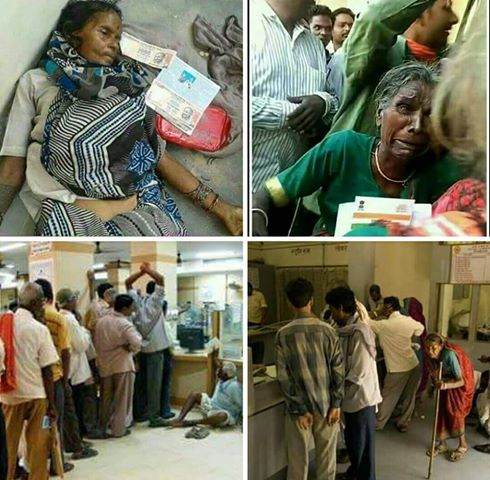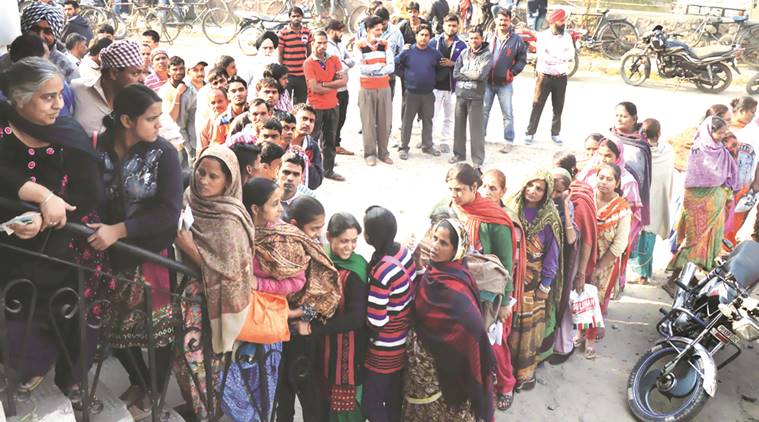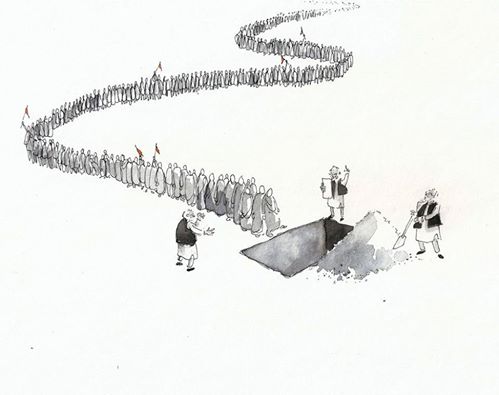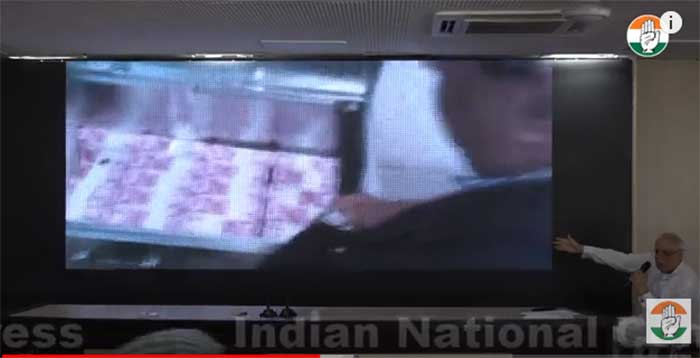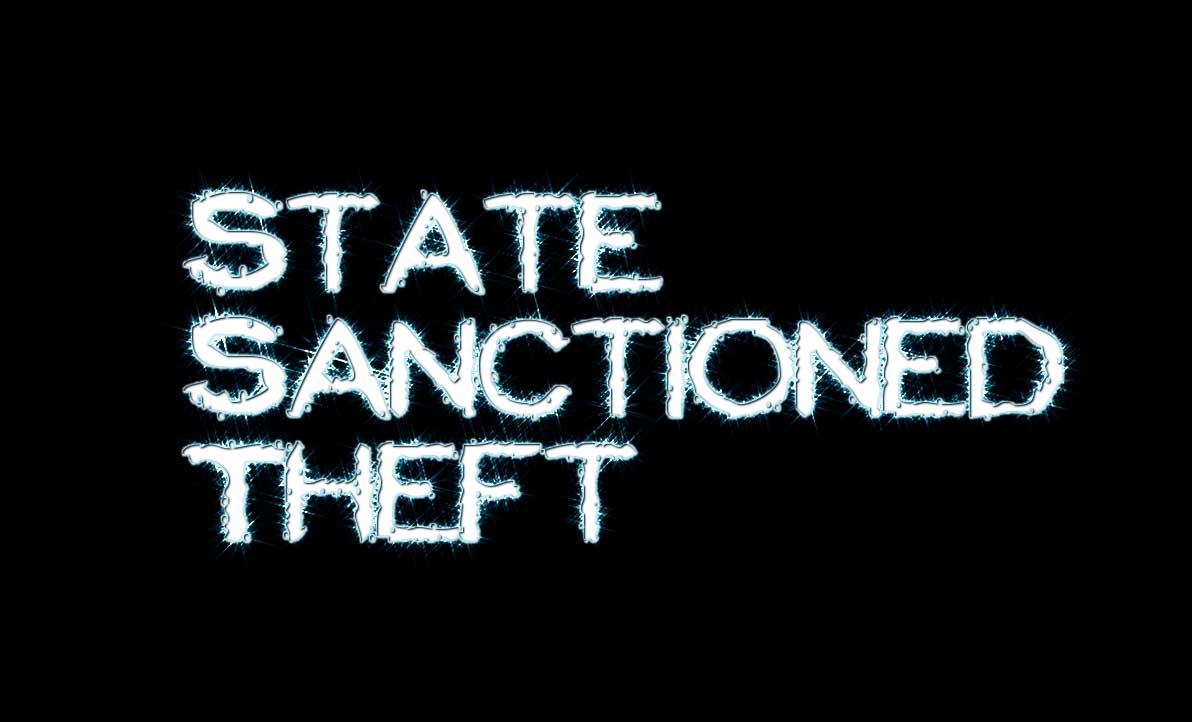
“This war has been in full swing in Europe and the U.S. for a long time. Governments plan to use negative interest rates, confiscatory taxes and other techniques to rob savers of their wealth. In order to do this, they have to force savings into digital accounts at large government-controlled banks.As long as savers can hold cash, they can avoid many of these confiscation techniques. Therefore, governments must eliminate cash.” Jim Rickards- author of The Road to Ruin.
The demonetization blitzkrieg of the NDA government was served to the unsuspecting Indian public as a moral crusade to destroy the twin evils of black money and counterfeit notes. But as the days went by the stated objects of the demonetization fell apart and the government did a series of embarrassing flip flops to put forth the view that the object was to usher in a cashless society where the digitally baptized citizens would swipe their plastic cards and waft to and fro in digital wallets with consummate ease.
If the overt objectives of the demonetization, i.e eradication of black money and counterfeit notes were indeed laughable, then other concerns about its covert objectives gave rise to legitimate concerns. What then is the hidden agenda of the demonetization exercise?
The answer lies in the crisis plaguing the Indian Public sector banks. Beset by bad debts caused by profligate borrowing by the corporate elites the public sector banks are saddled with non performing asset (NPA). Conservative estimates place the NPA at Rs 6 trillion.[i] Moreover, ‘gross non-performing assets (NPAs) rose to 9.5 per cent of total advances in 2015-16, up from five per cent the year before.’ [ii]The bad news keeps piling up ‘But as most banks didn’t adequately provide for these loans, it has put pressure on their solvency position. If PSBs were to currently provide for all their bad loans, it would erode 66 per cent of their total net worth..’[iii] The PSU banks have reported a loss of Rs 17,672 crore in 2015-16, down from a profit of Rs 36,350 crore in 2014-15.’[iv] This has a ripple effect ‘their stock prices have tanked, eroding crores of rupees in market capitalisation. The Nifty PSU Bank Index declined from a high of 4,419.25 in January 2015 to 2,913 on July 20, 2016.’[v]
Another nail in bank sector’s coffin appears to be severe erosion in the bank deposit base. As a business report states ‘Indian banks are staring at a deposit erosion of Rs 1.5-2 lakh crore between September and November as foreign currency non-resident deposits (FCNR) mobilized in 2013 mature around that time. This could result in an acute liquidity shortage and a possible de-growth of balance sheets.’ The savings from the household sector fell to 9.8% of GDP reaching the lowest level in 25 years.[vi]
Thus deposits being mobilized from the household sector of the economy appear grim.The problem of liquidity crunch and the accumulating corporate bad loans is made worse in a fractional reserve banking system where the mountain of credit rests on a sliver of liquidity base.In the event of financial panic involving banks, investors would take their deposit from banks in physical cash and bolt for safety.
There are basically two approaches to the problem. First is to make money readily available to satisfy the demand and hoping thereby to calm the panic and stop the bank run. This is a classic central bank function as the lender of last resort. The second approach is to say no and freeze the system. This approach is also called “Ice Nine”.[vii]
The term “Ice Nine” is from the novel “Cat’s Cradle” written by Kurt Vonnegut in 1963. This substance was discovered by a character in the book, a Dr. Felix Hoenikker, which could freeze another molecule of water when it came into contact with it. “Ice Nine” had the awesome capacity to freeze rivers, lakes and oceans.
In a financial panic, a “Ice Nine” approach means taking draconian measures to prevent or severely restrict withdrawal of physical cash from bank accounts, shutting down ATM’s and ordering asset managers not to sell securities. In other words this means financial repression or lockdown.[viii]
“Ice Nine” was put to deadly effect in the Cyprus banking crisis in 2012 and the Greek sovereign crisis in 2015. The financial repression was brutally enforced: Banks were shut down and the ATM machines were taken out. The banks blocked the depositors from withdrawing physical cash from their accounts. A mad scramble for cash started. In Cyprus the Laiki Bank was shut down and the bank of Cyprus was restructured by the govt. Deposits above the insured amount of e 100,000 was transferred to a bad bank where the chance of recovering any sum was next to impossible. At the bank of Cyprus, the meat cleaver was applied with deadly effect: around 47.5% of the uninsured deposits over e 100000 were used to recapitalize the bank.[ix] Financial commentators whose humour was on the dark side called it the Cyprus haircut. Some called it a bail-in. Others called it simply an officially sanctioned theft.
The Cyprus haircut got policy status in the newly formed global organization by G20 called the Financial Stability Board (FSB). In an arcane technical report FSB made it clear that in the event of bank losses the depositors should absorb the losses. The bank deposits could be used to write down and convert into equity all or parts of the unsecured deposit lying with the bank.
The Cyprus haircut was applied with deadly effect in the Greek crisis during 2015. The modus operandi was the same: the banks were shut down and the ATM machines stopped dispensing cash. Credit cards were declined by merchants and the people resorted to quasi barter system to keep trade and commerce going. Depositors realized that their bank deposit was not theirs and could be frozen any time. In other words they could get a Cyprus haircut.
The demonetization shock therapy administered by the corporate friendly neo-liberal government of Modi could in all probability be another bail-in for the Public sector banks plundered by the corporate elites. Ominously the key ingredient “Ice Nine” (freezing or restricting cash withdrawals) seems to be essential part of the package.
The government’s “Ice Nine” has grave implications for the household sector savings in bank accounts. This includes senior citizens having deposits in the banks who are struggling against medical and other costs and who are dependent on interest from fixed deposits. Will their sequestered cash lying frozen in bank accounts be used to wipe out the bad bank debts of the corporate elites? Will the sequestered bank deposits suffer negative rate of interest from which there is no escape?
At risk is also the informal sector of day workers, small businesses and farmers who would be locked in digital wallets and pummeled by transaction costs, bank fees and service taxes. Gone are the days when one could withdraw cash freely and transact without burdensome charges or fees. It is standard operating procedure for governments wedded to neo-liberal policies to lessen corporate tax and income tax in favour of regressive indirect taxes, levies, and charges falling on the wretched of the earth. For neo-liberal ideologues there is no greater pleasure than in extracting wealth from the bottom of the pyramid.
With “Ice Nine” in place for freezing cash in bank accounts or digital wallets, it is unlikely that the meek shall inherit a digital Eldorado. In a deadly run up to a cashless society it is more probable that they shall get a surgical haircut- Cyprus style.
C R Sridhar is a lawyer. sapientpen.blogspot.in
[i] http://www.firstpost.com/business/rs-600000-crore-npas-over-90-with-psbs-is-the-bad-loan-story-turning-scary-2822560.html
[ii] http://www.business-standard.com/article/specials/statsguru-tackling-the-npa-problem-in-public-sector-banks-116072400718_1.html
[iii] ibid
[iv] ibid
[v] ibid
[vi] www.livemint.com /Money/PMP0KTB4R8qvV0S1hulj0K/Household-gross-financial-savings-as-percentage-of-GDP-lowes.html
[vii] The Road to Ruin-James Rickards- chapter This is the end.
[viii] ibid
[ix] www.rt.com /business/cyprus-crisis-bailout-deposit-631/

